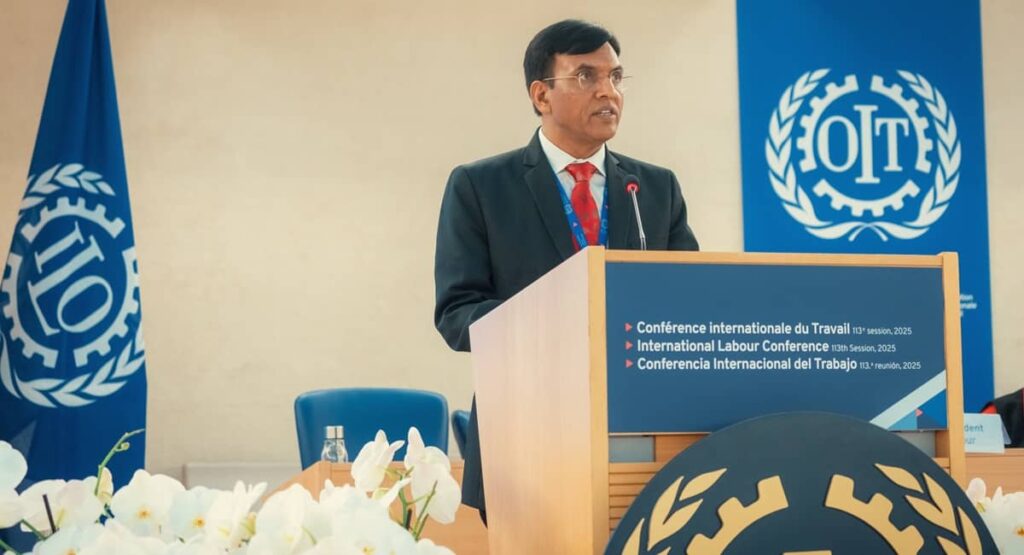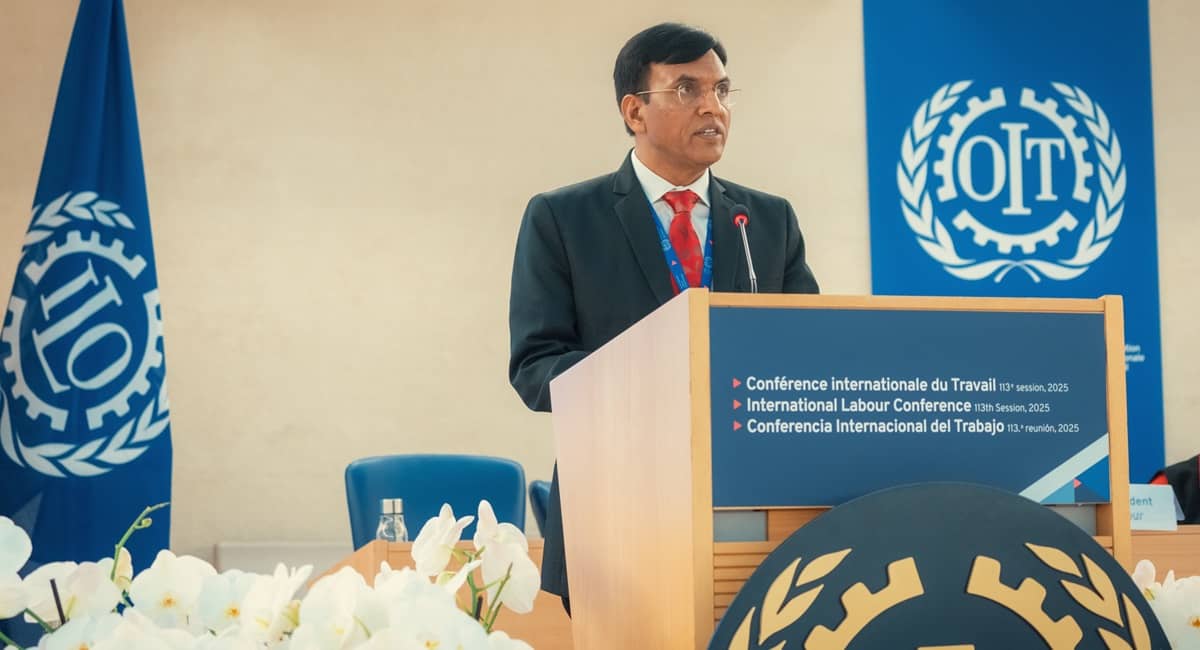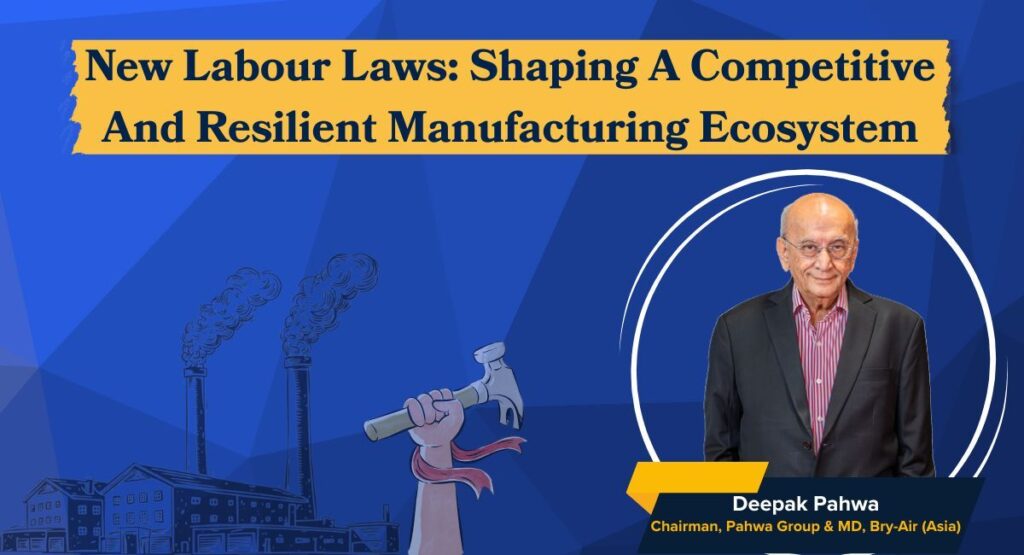Union Minister of Labour & Employment Dr. Mansukh Mandaviya stated at the Plenary Session of the 113th International Labour Conference (ILC) in Geneva that over 7.5 crore jobs have been created in India’s formal sector in the last seven years.
“I am happy to report that India’s unemployment rate, which was 6% in 2017, has declined to 3.2% by 2024. We have made significant advances in improving formalization of employment, creating over 7.5 crore jobs in the formal sector in the last seven years,” Dr. Mandaviya shared. “Our Employment Linked Incentive (ELI) scheme with an outlay of approximately US $12.81 billion is expected to further boost job creation in the formal sector.”
Dr. Mandaviya went on to talk about India’s progress in digital infrastructure.
“India has built a strong digital public infrastructure with platforms like the National Career Service (NCS), which serve as a ‘one-stop solution’ for our youth and working population. We are now leveraging NCS to aggregate global job demands and facilitate international labour mobility,” Dr. Mandaviya explained. “We are creating a vibrant Education to Employment ecosystem bringing together universities, industry partners and skilling centers at a common platform to provide career opportunities to our youth driven by real market demand.”
During the conference, Dr. Mandaviya also held a bilateral discussion with the Director General, International Labour Organisation (ILO), Gilbert F Houngbo, on the sidelines, highlighting the pro-poor and labour welfare schemes undertaken by the Modi Government over the past 11 years. He also talked about the national-level Social Protection Data Pooling Exercise that has been carried out by the Government in collaboration with the ILO.
In turn, ILO has acknowledged India’s achievement and officially published on its dashboard that 64.3% of India’s population (over 94 crore people) are now covered under at least one social protection benefit. In 2015, this figure was just 19%. As such, India now ranks second in the world beneficiary count. Houngbo praised India’s focused welfare policies for the poor and labour class under Prime Minister Narendra Modi’s leadership.
The ILO’s criteria for Scheme Consideration for each country include that the scheme should be legislatively backed, in cash, and active. Additionally, verified time series data for the last three years must be provided.
“This remarkable achievement stands as a testament to the visionary leadership of Prime Minister Shri Narendra Modi and the relentless efforts of the Government in building an inclusive and rights-based social protection ecosystem. The increase marks the fastest expansion in social protection coverage worldwide, reflecting the Government’s unwavering commitment to “Antyodaya” i.e., empowering the last mile and fulfilling the promise of leaving no one behind,” said Dr. Mandaviya.
The figures shared with the ILO only reflect Phase I of the data pooling exercise, focusing on beneficiary data of Central sector schemes and women-centric schemes in the selected 8 States. Following Phase II and further consolidation underway, India’s total social protection coverage is expected to soon surpass the 100-crore mark upon verification of additional schemes by the ILO.
India has also become the first country globally to update its 2025 social protection coverage data in the ILOSTAT database, reinforcing its leadership in digital governance and transparency in welfare systems.
The increase in Social Protection Coverage is set to strengthen India’s global engagements, particularly in finalising Social Security Agreements (SSAs) with developed nations. These agreements will ensure the portability of social protection benefits for Indian professionals working overseas, while offering partner countries the transparency required for mutual recognition frameworks. This will further bolster India’s position in trade and labour mobility negotiations by showcasing a credible and robust social protection regime.





